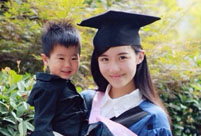Probe of Xu Caihou shows Party's determination to fight corruption
China's ruling party said there will be no tolerance of corruption in the Party and the military, no matter how high ranking an official, after a top-level military general was kicked out of the Party on the eve of its birthday.
The Political Bureau of the Communist Party of China Central Committee, composed of the 25 most powerful people in the country, expelled Xu Caihou, the highest military official in the previous Chinese leadership, from the Party for corruption.
Xu, 71, former vice-chairman of China's Central Military Commission, has been transferred to military prosecutors for further investigation on bribery charges.
He is the highest military leader investigated since China's reform and opening-up in 1978 and also the second former member of the Political Bureau of CPC Central Committee investigated for corruption after Bo Xilai, former Party chief of Chongqing.
The decision was made just one day ahead of the 93rd anniversary of the establishment of the CPC.
According to the political bureau, Xu was found to have accepted bribes, personally as well as through family members, from those who wanted to get promoted. He was also accused of making profits for others with his power and accepting their money and gifts.
Wang Yukai, a professor of anti-graft research at the Chinese Academy of Governance, said that the investigation of Xu had been reported among senior military officers for a long time.
"It's rare to probe such a high-ranking military leader," he said, adding that more measures will be taken to fight corruption in the army, with more military officers to be probed.
Allegations against Xu are likely connected with Gu Junshan, former deputy head of the PLA General Logistics Department, who was prosecuted in March, he said.
The investigation of Xu started on March 15, according to the political bureau.
The probe of Xu reflects the Party's firm resolution to fight corruption in the army.
The political bureau also decided to expel three senior officials from the Party — Jiang Jiemin, former head of the State-owned Assets Supervision and Administration Commission of the State Council; Li Dongsheng, former vice-minister of public security; and Wang Yongchun, former deputy general manager of China National Petroleum Corporation.
On March 31, two teams dispatched from central authorities finished an inspection of the Jinan Military Area Command and Beijing Military Area Command. Of the seven military area commands, the two areas are nearest Beijing. Xu worked as political commissar of the Jinan Military Area Command from 1996 to 1999.
Inspectors announced they had collected important whistle-blower's tips on military officers' misbehavior including promotions, construction projects, land use and affordable house construction and sales.
Zhuang Deshui, a professor of anti-graft research at Peking University, said strengthening regulation of the military forces and military industries is urgent since lack of supervision could result in grave corrupt activities in the army, he said.
Military authorities have enhanced supervision of corrupt activities in recent years amid the clean-governance campaign.
On March 31, the military procuratorate charged Gu Junshan, former deputy head of the PLA General Logistics Department, with embezzlement, bribery, misuse of State funds and abuse of power.
Caixin magazine reported prosecutors seized four truckloads of assets including a gold basin, a gold statue, and numerous bottles of Moutai — a luxury liquor — when they searched Gu's house in his hometown on Jan 12 last year. The report also said that Gu had dozens of houses, all about 170 square meters, near Beijing's Second Ring Road.
 |
 Female master poses for graduation photos with son
Female master poses for graduation photos with son Silk Road, China's Grand Canal listed as World Heritage Sites
Silk Road, China's Grand Canal listed as World Heritage Sites PKU students imitate famous paintings in real-person photos
PKU students imitate famous paintings in real-person photos Chinese 'Slumdog Millionaire'
Chinese 'Slumdog Millionaire' Puzhehei: land of idyllic beauty
Puzhehei: land of idyllic beauty Stewardesses in Brazilian soccer jerseys
Stewardesses in Brazilian soccer jerseys Chinese navy fleet visits Cape Town, South Africa
Chinese navy fleet visits Cape Town, South Africa PLA naval cadets toss their hats at graduation ceremony
PLA naval cadets toss their hats at graduation ceremony Graduation photo ideas: reliable alumnus and happy alumna
Graduation photo ideas: reliable alumnus and happy alumna Islands in S. China Sea better shown on new vertical atlas of China
Islands in S. China Sea better shown on new vertical atlas of China Girl takes father’s portrait to travel the world
Girl takes father’s portrait to travel the world Images of Xi'an: Part one
Images of Xi'an: Part one In Pictures: Female fans of World Cup
In Pictures: Female fans of World Cup Top 20 hottest women in the world in 2014
Top 20 hottest women in the world in 2014  China's top 10 representative architectures
China's top 10 representative architecturesDay|Week|Month